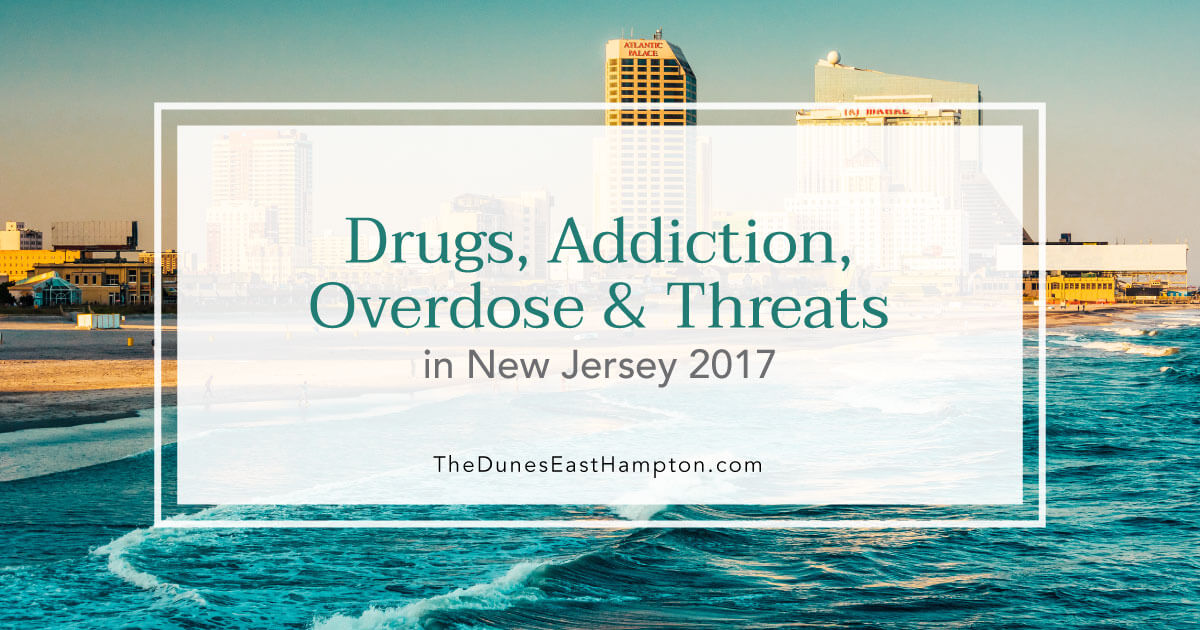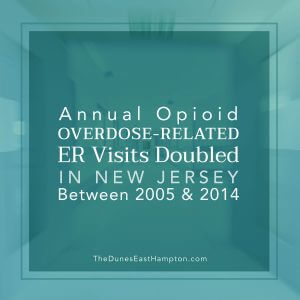 The ongoing opioid crisis in the United States has spurred numerous legislative measures, advocacy programs, increased public awareness over the issue, and many unconventional tactics to curb the growing number of overdose deaths in the country. Some states have felt the effects of the opioid crisis more acutely than others, and every state has unique problems when it comes to handling this epidemic. New Jersey is one of those states experiencing extreme problems with recent drug overdoses 2017.
The ongoing opioid crisis in the United States has spurred numerous legislative measures, advocacy programs, increased public awareness over the issue, and many unconventional tactics to curb the growing number of overdose deaths in the country. Some states have felt the effects of the opioid crisis more acutely than others, and every state has unique problems when it comes to handling this epidemic. New Jersey is one of those states experiencing extreme problems with recent drug overdoses 2017.
New Jersey appears to be flirting with the idea of legalizing marijuana after seeing the results this move has had in Colorado, where Amendment 64 in 2012 legalized recreational marijuana use in the state.
New Jersey’s Push for Legalizing Marijuana
As of June 2017, New Jersey lawmakers have started to consider the potential impact a multibillion dollar marijuana industry could have on the state, both in terms of increased tax revenue from marijuana sales and helping curb the opioid crisis.
Despite intense opposition from Gov. Chris Christie, who is in the final months of his last term as governor, Democrats in the state legislature believe the upcoming election cycle will see marijuana legalization as one of the most prominent topics.
Disagreement Among New Jersey Political Leadership
While the conservative members of the New Jersey legislature, as well as the Republican candidate for governor Kim Guadagno, oppose marijuana legalization, a bill proposed by Democratic Sen. Nicholas Scutari offers several measures inspired by the success seen in Colorado.
After legalizing marijuana, Colorado witnessed a noticeable decrease in the number of new opioid addiction cases and opioid-related overdose deaths in the state. Medical research has suggested marijuana may be an effective treatment method for many medical conditions often treated with opioids.
What Does the Marijuana-Legalization Bill Include?
Sen. Scutari’s bill proposal (S3195) targets more responsible allocation of state funds and measures focused on marijuana legalization.
If passed, the bill calls for:
- Decriminalization of marijuana possession of up to 30 grams.
- Record expungement for those with past possession charges for up to 30 grams.
- The establishment of a State Department of Marijuana Enforcement, which would be responsible for overseeing the legal marijuana industry in the state.
- Legalizing personal possession of up to one ounce of dried marijuana, 16 ounces of edible products infused with marijuana, 72 ounces of liquid containing cannabis, and up to seven ounces of marijuana concentrate.
- Incrementally increasing sales tax on marijuana sales, beginning at 7 percent and increasing 5 percent each year until reaching 25 percent. The bill also calls for abolishing taxes on medical marijuana.
- Existing medical marijuana dispensaries would have the first opportunities to sell recreational marijuana.
Polls indicate the New Jersey population seems to want legal marijuana, with about 58 percent of survey respondents reporting they support legalization. If New Jersey can mirror the results seen in Colorado, marijuana legalization could help stem the growing numbers of recent drug overdoses 2017 from heroin and fentanyl in the state.
Opioid and Recent Drug Overdoses 2017
New Jersey has not addressed the ongoing opioid epidemic with the same fervor as other states. On March 29, 2017, President Donald Drumpf established the Commission on Combating Drug Addiction and the Opioid Crisis through executive order. The group had a deadline of 90 days to supply an interim report to the president, and it has failed to do so twice.
Gov. Christie has pushed the deadline back to July 31 after first pushing it back to July 17. The final report from the commission is due October 1 of this year.
Overdose Death Rates Continue to Climb
 Earlier this year, Christie proposed that the state’s leading medical insurance company, Horizon Blue Cross Blue Shield of New Jersey, could tap into its several billion dollars of reserve funds to open new addiction treatment services. His proposal failed.
Earlier this year, Christie proposed that the state’s leading medical insurance company, Horizon Blue Cross Blue Shield of New Jersey, could tap into its several billion dollars of reserve funds to open new addiction treatment services. His proposal failed.
New Jersey citizens are now eager for answers from state policymakers after witnessing more than 900 deaths via opioid overdose in 2015 alone. Data from 2016 and recent drug overdoses 2017 is expected to eclipse this figure by a wide margin.
One of the most prevalent issues facing New Jersey, and many other states mired in the opioid crisis, is the wide availability of fentanyl.
Fentanyl, a synthetic opioid, is up to 100 times more powerful than heroin, and drug dealers have started mixing it into their heroin supplies to produce more-intense highs.
The people who purchase heroin have no idea whether their dose of the drug contains fentanyl. (Keep in mind a lethal dose of fentanyl is a tiny fraction of what a lethal dose of heroin is.) Worth noting is that between 2005 and 2014, emergency room trips for opioid overdoses have more than doubled in New Jersey.
Politics Are Preventing Progress
The New Jersey bureaucracy is one of the major roadblocks preventing positive change in the state. Disagreements between state lawmakers and political influences from Washington, D.C. are making dealing with New Jersey’s opioid problems especially difficult. This is one of the main reason recent drug overdoses 2017 are on the rise.
The best methods at this point for fighting the opioid crisis are raising public awareness and encouraging treatment for those who are struggling. Due to poor accessibility to substance abuse treatment in New Jersey, those struggling with opioid dependency may need to look for an out-of-state option.
The Dunes East Hampton offers substance abuse treatment and counseling out of a luxury rehab center in New York. Our Hamptons location can offer respite and freedom from negative influences for out-of-state clients.
Opioid addiction progresses very rapidly, and without intervention, it can easily turn fatal. Don’t wait to seek help for yourself or a loved one struggling with addiction. As more New Jersey citizens recognize the severe opioid crisis in the state, hopefully it will encourage them to seek drug addiction treatment sooner rather than later.
Want to take a more in-depth look at the prescription drug epidemic on a national level? Click below:







